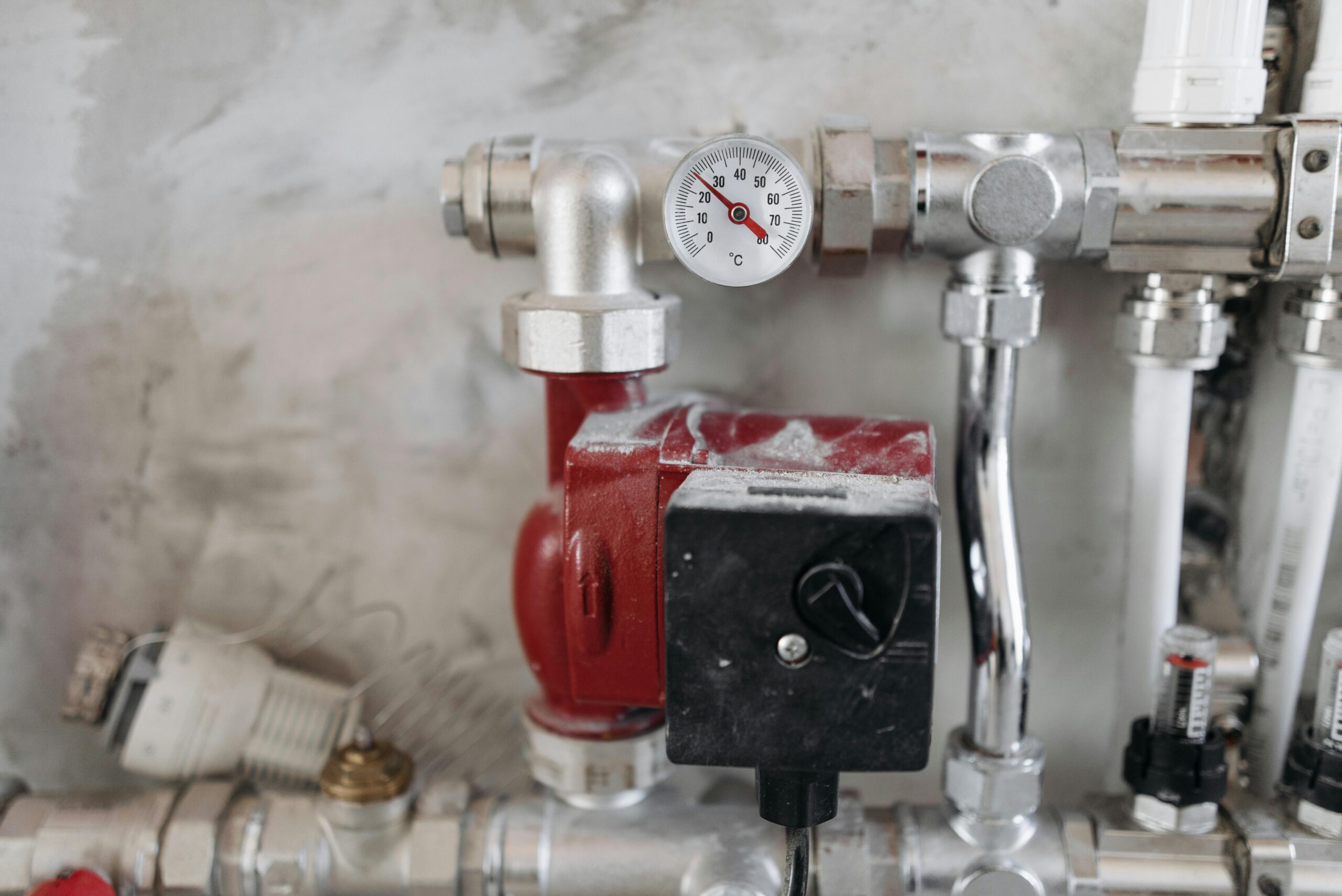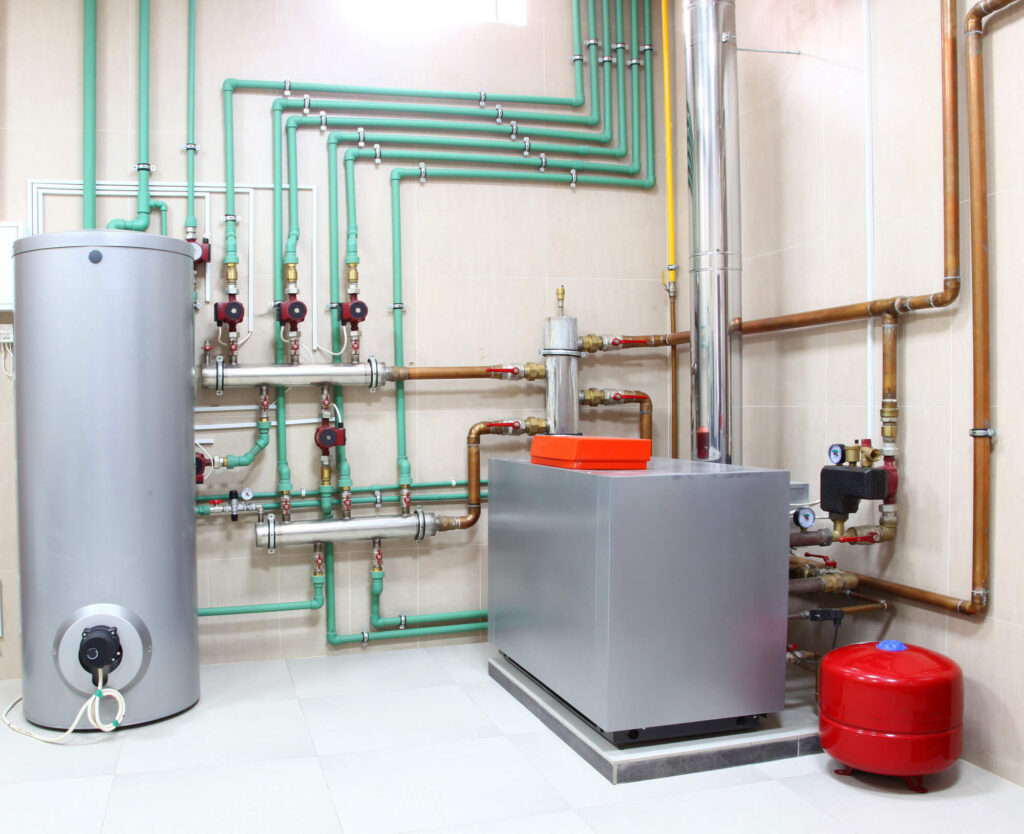Replacing a boiler is a big investment, and the cost can feel overwhelming if you don’t know what to expect. Prices vary depending on the type of boiler, labour, and extra work like new piping.
This guide breaks down the numbers so you can budget smart, avoid surprises, and make a confident decision for your home.
How much does it cost to replace a boiler?
Replacing a boiler costs $4,000–$7,500 on average, with high-efficiency models ranging from $6,000–$12,000.
Key Takeaway
- Boiler replacement typically costs $7,500–$12,000.
- High-efficiency models run $15,000–$25,000 but lower energy bills long term.
- Costs depend on boiler type, home size, labour rates, and extra work like piping or controls.
- Extras such as permits, thermostat upgrades, and old unit disposal can add hundreds.
- Get multiple quotes, check rebates, and plan off-season installs to save money.
What Affects the Cost of Replacing a Boiler?

Several factors push the price up or down, and knowing them helps you budget smartly. First, the type of boiler matters. If you’re weighing what is a condenser boiler vs combi, remember that a like-for-like swap is usually cheaper than moving to a high-efficiency combi or adding new pipework.
Your home’s size and heating needs also play a role. Bigger spaces demand higher-capacity units, which cost more upfront. Location adds another layer. Labour rates in your area and how tricky the installation spot is can make a difference.
Don’t overlook the extras. A new thermostat, smarter controls, or upgrading those old radiators can quickly add to the final bill. The smart approach? Get several quotes and consider the full package, not just the headline price. And if you’re still wondering what does a boiler look like, getting clarity upfront helps you know exactly what you’re paying for—whether it’s substance or just smoke.
Average Boiler Replacement Costs
Replacing a boiler isn’t pocket change, but knowing the ballpark helps you budget smart. On average, a standard boiler swap runs anywhere from $3,500 to $8,000, depending on size, type, and labour.
High-efficiency models sit higher on the scale, often in the $6,000 to $12,000 range. They cost more upfront but save you on energy bills, so it’s like paying for a Tesla instead of a used hatchback—you’ll notice the difference long term.
Installation plays a big role too. A straight swap in the same spot is cheaper, while moving the unit or upgrading pipes pushes the price up. Think of it like remodelling your kitchen versus just replacing the fridge.
Don’t forget extras like permits, thermostats, or old boiler disposal. These add a few hundred bucks but are worth building into your budget so there aren’t nasty surprises. Bottom line: expect a mid-four to low-five figure bill, with efficiency and setup being the biggest price drivers.
Additional Costs to Consider
The boiler itself isn’t the only thing you’ll be paying for. Labour fees can stack up fast, especially if your system needs extra pipework or rewiring. A tricky installation usually means a higher bill.
Don’t forget about permits and inspections. Some areas require them, and while they’re not expensive, they still add to the total. Skip them and you risk fines or issues when selling your home.
You might also face upgrades like a new thermostat, better radiators, or flushing out an old system. These extras aren’t mandatory but, much like scheduling boiler repair in Smithfield, they can boost efficiency and save money long term.
And don’t forget to factor in the cost of removing your old unit. Hauling it away usually comes with a fee, and contractors often add it to the bill. Just like knowing how frequent should service a boiler can save you from surprise repairs, planning ahead for these extra charges will help keep your budget in check.
How to Save Money on Boiler Replacement
Boilers aren’t cheap, but you don’t have to drain your wallet to get one installed. For instance, checking your oil tank while replacing boiler components can help you avoid unnecessary costs later. A little strategy goes a long way in trimming expenses without cutting corners.
First, always get multiple quotes. Prices can swing depending on the installer, so comparing a few gives you leverage. Think of it like sneaker drops—don’t just grab the first pair you see, shop around.
Next, check for rebates or energy-efficiency incentives. Utility companies and governments often offer cashback or tax credits for eco-friendly upgrades. That’s basically free money waiting for you.
Timing helps too. Booking during off-peak seasons, like spring or early fall, can snag you lower labour rates. Installers aren’t swamped then, which means you’ve got room to negotiate.
Finally, consider long-term savings. A high-efficiency boiler might cost more upfront but will cut down monthly energy bills. It’s the Rolex approach—spend more now, save more later.
Signs You Need a New Boiler

If your boiler starts banging, clanking, or whistling like it’s auditioning for a horror movie, that’s a warning sign. These strange noises usually mean parts are wearing out, and it may be time to call for reliable boiler repair in Cumberland.
Another warning sign is when your heating bills climb even though your usage hasn’t changed. This often points to an ageing unit working inefficiently or issues like a boiler not heating water properly, which forces it to use more energy just to keep up.
Leaks around the unit aren’t just messy, they’re dangerous. Water damage plus faulty parts can quickly snowball into a full breakdown.
If you’re constantly calling for repairs, it’s probably cheaper to replace than to keep patching it. Think of it like an old car—at some point, the fixes cost more than the ride.
And if your boiler’s over 15 years old, it’s living on borrowed time. New models run cleaner, safer, and save you cash in the long run.
Boiler Replacement vs Repair: Which Is Better?
If your system only needs a small fix, like replacing a valve or pump, scheduling boiler repair in Pawtucket makes perfect sense. It’s quick, affordable, and extends the life of your boiler before a full replacement is needed.
But if you’re calling the repair guy every winter, that’s your cue. Constant breakdowns stack up, and at some point the repair bills could almost buy you a new unit.
A replacement feels like a big spend upfront, but you’re getting a modern system with better efficiency. That means lower bills and fewer headaches long term.
Here’s the rule of thumb: if repairs cost more than half the price of a new boiler, go for replacement. If it’s a minor issue and the unit’s under 10 years old, repair is the smarter play.
Frequently Asked Questions
1. How much does it cost to replace a boiler?
On average, you’re looking at $4,000–$7,500, depending on size, brand, and install work.
2. Does the type of boiler change the price?
Yep. Gas, oil, or electric units all come with different price tags and install needs.
3. How long does installation take?
Most swaps take one to two days. Complex setups can stretch to three.
Conclusion
Replacing a boiler isn’t cheap, but it’s not just about the upfront price tag. A solid system saves you money long-term on energy bills and avoids constant repairs.
If your old unit’s guzzling fuel or breaking down every season, it’s time to swap it out. Get quotes, compare options, and don’t ignore maintenance deals.
Think of it like upgrading from an old flip phone to a sleek smartphone. It costs more now, but the payoff in comfort, reliability, and efficiency is worth it. Your wallet (and your showers) will thank you.